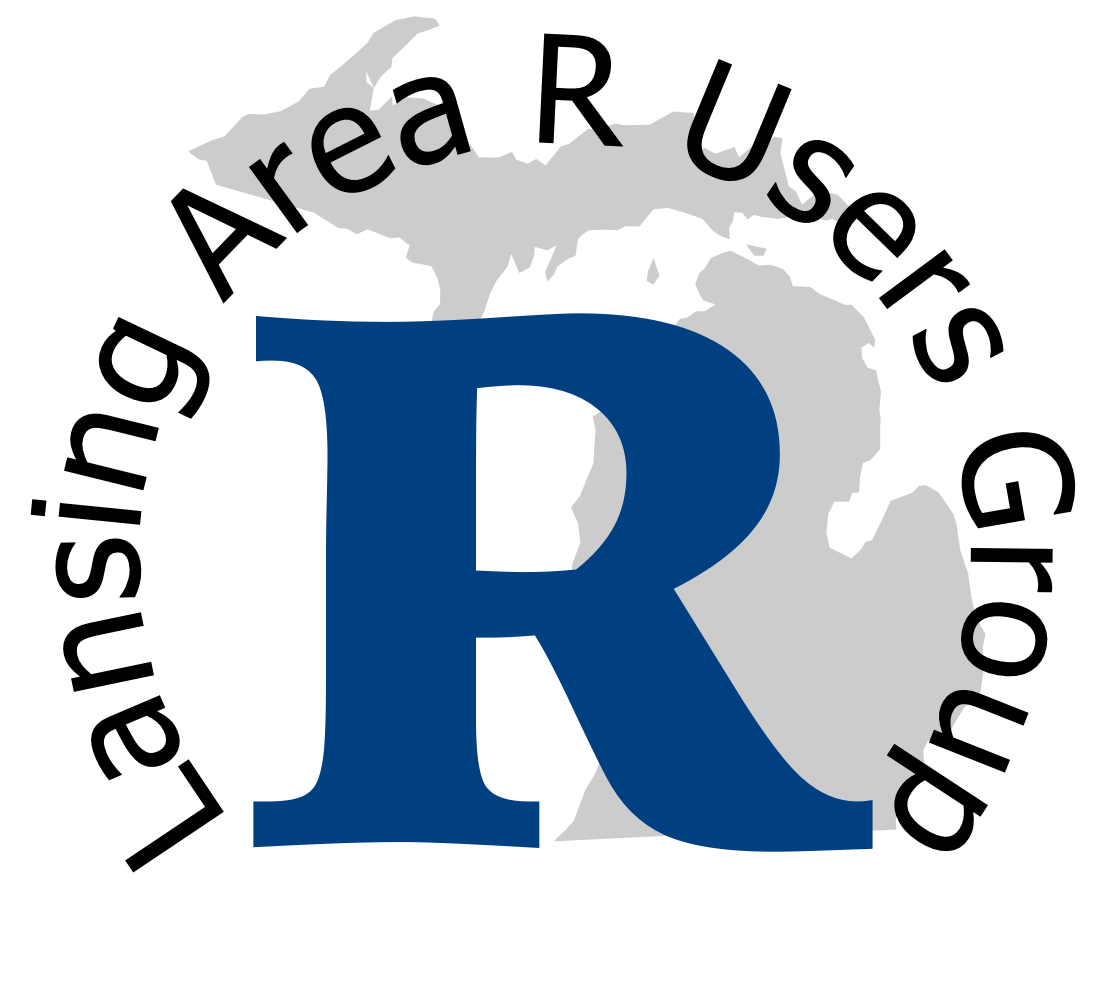Lansing Area R Users Group (laRUG) with Data Science
The Lansing Area R Users Group (laRUG) brings together R users in the Lansing area for discussions on data science (analysis and predictive modeling), big data, and all things R. This group provides a relaxed environment to exchange ideas and discuss R. Whether you are new to R (and programming), a statistician, or an advanced user, we are the group for you.
June 2017 Notes on Q&A about the Data Science Job Market
 The June 2017 meetup was a chance for members to group watch Data Science 2017: Salaries, Demographics, & Hiring Trends by Burtch Works. Following the video we had a discussion with Naomi Keller (please connect with Naomi on LinkedIn) of Burtch Works about what employers are looking for in a data scientist.
The June 2017 meetup was a chance for members to group watch Data Science 2017: Salaries, Demographics, & Hiring Trends by Burtch Works. Following the video we had a discussion with Naomi Keller (please connect with Naomi on LinkedIn) of Burtch Works about what employers are looking for in a data scientist.
If you missed the meetup (or want to watch the video again) the video is here on YouTube. Related videos are available on Burtch Works’ YouTube channel.
The Q&A session with Naomi Keller was very informative and included:
- How does one convert a CV to a resume? Your resume should be no more than two pages and include specifics about past and current research projects written for the non-expert while including data science buzzwords.
- How hard is it to get your first data scientist job and differentiate oneself from others looking for their first job? There is no universally accepted definition for what a data scientist is or does. Some employers are specifically looking for candidates with PhDs but most want at least a MS or PhD. If you know someone at a company you want to work at ask them for an introduction to the hiring manager.
- It seems every job title has “data scientist” in the title. Why? There are a number of factors likely contributing to this. First, as described above, there really isn’t a universal definition to data science, and as a result, job descriptions for the title can vary widely. We’ve also seen companies want to cast their net wide for potential candidates as possible. Carefully read the job posting paying specific attention to the description and types of questions the company is trying to answer along with the desired skills. The combination of desired skills and job functions will tell you a lot about the position.
- How big are data science groups? The size of data science groups depends on the organization and the industry.
- What are the new hot areas? The internet of things (IoT) is a large and exciting area being developed by companies with internet connected devices and sensor data. These companies will need data scientists to analyze the data from their products and help answer questions about the customers and their needs.